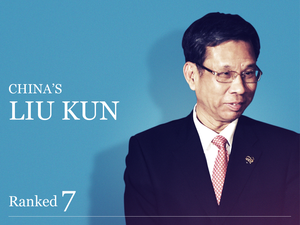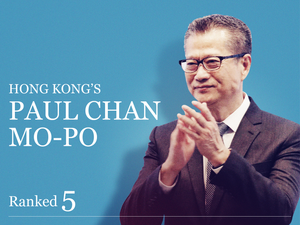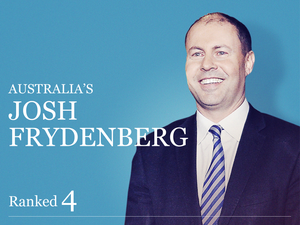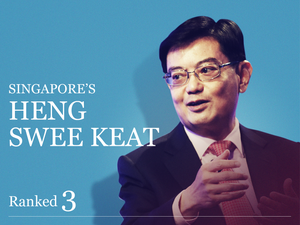It is clear an individual’s ability is better demonstrated when working against the headwind than under favorable environments. This is the best way to sum up Carlos Dominguez’s performance over the past 12 months.
After delivering a good list of achievements in his second year as finance secretary of the Philippine government in 2017, Carlos Dominguez had to deal with a much tougher year throughout 2018 after lawmakers refused to pass the P3.76 trillion ($72 billion) 2019 national budget, causing a stalemate in new government spending since the beginning of the year.
Since January the Philippine government has been operating under a re-enacted budget, which is rolled over from the government budget last year.
Under the re-enacted budget, the government cannot make any extra spending, implying there were no new infrastructure projects, no expansion of programs and services and no salary hikes for officials, among others.
The archipelagic state’s economy has already seen early signs of damage from the budget fiasco. The government’s economic team has lowered the country’s GDP growth forecast by one percentage point this year, after Dominguez said he expects Manila to forgo nearly $880 million in spending in the first quarter.
The Development Budget Coordination Committee is now aiming for a 6% to 7% GDP growth this year, compared to the original target of 7% to 8%.
Dominguez’s proposed 2019 budget received lawmakers’ opposition because he suggested a drastic reform that may lead to budget cuts across all departments.
In what is known as the cash-based budget system, the government will only approve and allocate resources for projects that could be initiated and finished within the year. Under the original system, the government can approve budget for multi-year projects.
Some economists believe Dominguez’s budget reform is beneficial to the nation’s long-term economic growth.
Clearly, the reform is aimed at addressing the long-standing problems of underspending where government agencies do not fully utilise their approved budgets. This problem is detrimental to the Philippines’ expansionary fiscal policy because the central government cannot make sure the funds are deployed appropriately.
Dominguez’s budget reform also forms a central part of president Rodrigo Duterte’s plan to improve efficiency. The new budget system promotes discipline among government departments and encourages better planning, early procurement and greater coordination.
To be sure, the reform is in line with Duterte’s attempt to supercharge the country’s economic growth to 7% to 8% until the end of his term in 2022.
Government budget aside, Dominguez is actively working to prevent tax evasion. One of his imminent tasks is to consolidate the list of foreign nationals working in Philippine offshore gaming operations to make sure they pay their income taxes.
The government also continued its recent practice of tapping the international bond market in the first two months of the year by successfully raising $1.5 billion from a US dollar bond offering in January depsite the budget fiasco.
The sovereign took advantage of a constructive credit market at that time to seal a deal that was towards the higher end of the $500-million-to-$2-billion fundraising target announced late last year.
That was about eight months after Standard & Poor’s raised the state’s credit outlook to positive from stable in late April.
¬ Haymarket Media Limited. All rights reserved.
$(document).ready(function () {
googletag.cmd.push(function () {
googletag.defineSlot(‘/5450/new-financeasia/sidebar/sidebar-content’, [[300, 250], [300, 600]], ‘gpt-ad-sidebar-12a6305d7cfc48048259ec0912473859’).addService(googletag.pubads());
googletag.pubads().enableSingleRequest();
googletag.pubads().collapseEmptyDivs(true);
googletag.enableServices();
});
$(‘#js-ad-12a6305d7cfc48048259ec0912473859’).append(“
“);
googletag.cmd.push(function () {
googletag.display(‘gpt-ad-sidebar-12a6305d7cfc48048259ec0912473859’);
});
googletag.cmd.push(function () {
googletag.pubads().addEventListener(‘slotRenderEnded’, function (event) {
if (event.slot.getSlotElementId().indexOf(‘gpt-ad-prestitial’)!==-1) {
if (!event.isEmpty) {
console.log(“presad”)
if (navigator.cookieEnabled)
window.prestAd.initCookie(10)
else if (window.localStorage) {
window.prestAd.initLocalStorage(10)
} else
console.log(‘no cookie & localstorage’);
}
}
});
});
});
Source : https://www.financeasia.com/article/carlos-dominguez-steering-well-in-the-storm/450423








